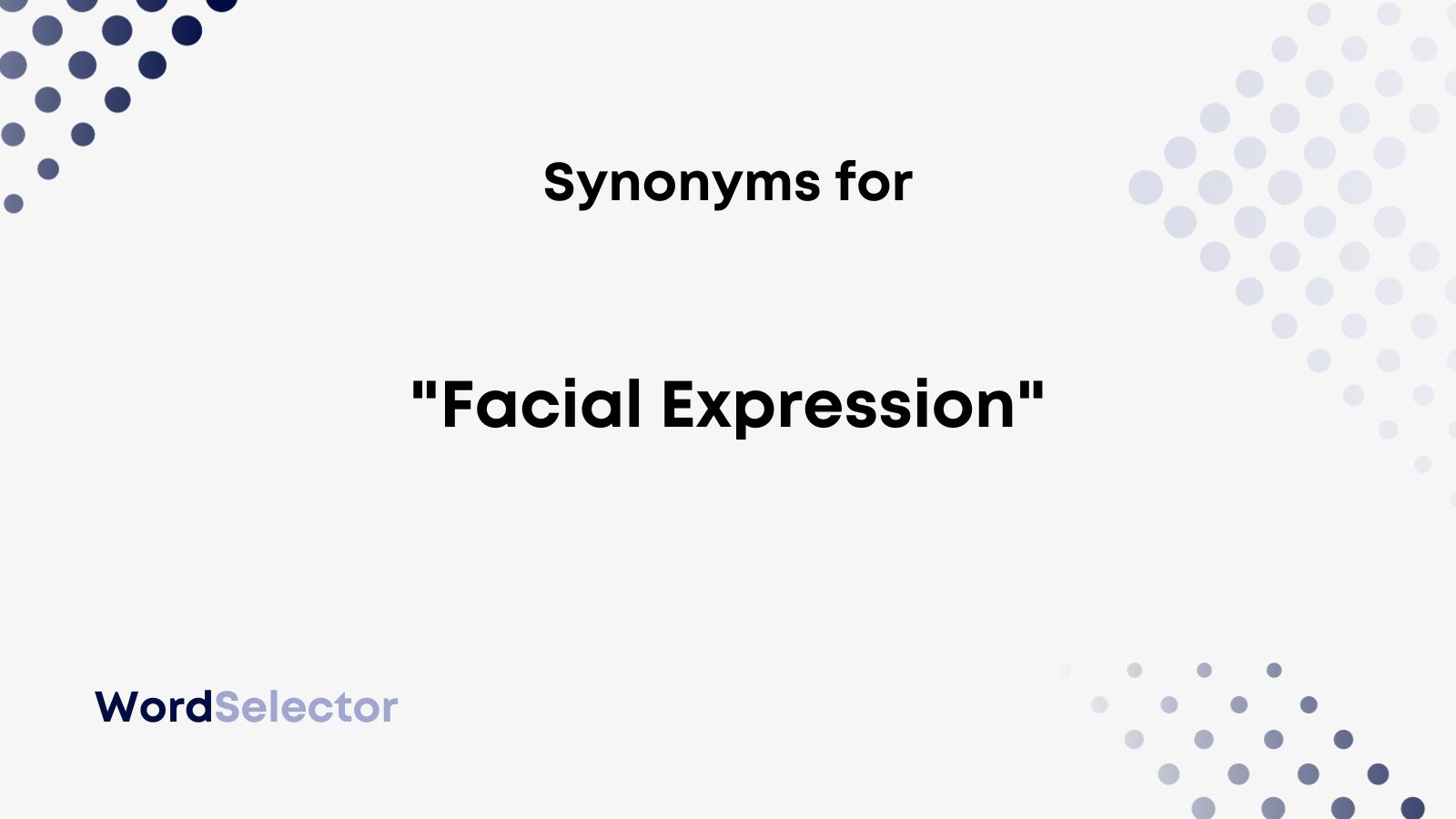Do you want to know the best way to talk about a facial expression?
Perhaps you’re wondering what to call facial expressions without using the phrase. After all, you’re probably concerned it’s repetitive and boring, right?
Luckily, we’re here to help.
This article will teach you how to say “facial expression” in different situations.
Other Ways to Say “Facial Expression”
- Countenance
- Visage
- Look
- Expression
- Aspect
- Demeanor
- Features
- Appearance
- Face
- Manner
- Guise
- Presence
- Complexion
KEY TAKEAWAYS
- “Facial expression” is correct and works well to describe the way someone is showing emotions on their face.
- Try “countenance” as a formal synonym that gives you one word to describe someone’s emotions.
- “Visage” is good as an informal alternative that’ll help you to mix things up in your writing.
Keep reading to learn another word for showing emotion in your face. We’ve touched on the best formal and informal choices to show you what can work in your writing.
You can also read the last section to learn if “facial expression” is correct. Then, you’ll know whether it’s worth including it in your writing in the first place.
Countenance (Formal)
Let’s start with “countenace.” This is a great formal synonym. It’s a word referring to the emotion on someone’s face.
The meaning of “countenance,” according to The Merriam-Webster Dictionary, is “the face as an indication of mood, emotion, or character.”
Generally, you can use it when describing how someone looks or what they’re feeling.
It’s most effective when writing to describe someone in a non-fiction situation. For instance, you might be recounting the events of a situation that recently occurred.
Check out these examples to learn more about it if you’re still unsure how it works:
He had a specific countenance about him that showed he did not care about his actions. It was sickening.
Her countenance gave very little away. She was clearly very good at hiding what she was capable of.
Visage (Informal)
For something a bit more informal, you could write “visage.” It’s a good way to mix things up, and it’s a one-word synonym that shows how someone shows emotion when necessary.
The Merriam-Webster Dictionary defines “visage” as “the face, countenance, or appearance of a person or sometimes an animal.”
Of course, “visage” is a great way to help you mix things up in your writing. It’s not used often, so people will be very impressed when it’s included.
You can use this when writing creatively. It could be a good way to describe a character’s feelings without having to explain what’s going on inside their head.
Feel free to review these examples if you’d still like to learn more about it:
He was very good at reading people’s visages. That’s why he always seemed to know what people were thinking before they did.
Your visage will tell them a lot. You have got to find a way to hide it; otherwise, they’ll know you’re lying about this.
Is It Correct to Say “Facial Expression”?
It is correct to say “facial expression.” Though the phrase might seem simple, it’s an effective way to describe someone’s emotions based on what they’re doing with their face.
You can also review these examples to learn more about how to use “facial expression” in a sentence:
It’s clear from her facial expression that she doesn’t like being here. We should talk to her.
That’s quite the facial expression you’ve got there! I’d love to be in your head right now to figure out what’s happening.
You should be careful using the phrase wrong, though! There’s a common mistake people tend to make when writing about it.
- Correct: Facial expression.
- Incorrect: Face expression.
Use “facial” as it acts as a descriptive word for “expression.” “Face” does not do the same job here and is incorrect.
Also, you can use the plural form of “facial expression.” This only applies when someone experiences multiple emotions at once.
For instance:
She went through a lot of facial expressions at the same time.
And here are some great extensions to show you how to modify “facial expression” in your writing:
- Serious facial expression
- Angry facial expression
- Neutral facial expression
- Confused facial expression
- Worried facial expression
- No facial expression
As you can see, these are all effective ways to be more descriptive and engaging. They will help to enhance your writing and keep readers entertained.
Also, you should bookmark this page at this point! After all, you never know when you might need to come back here to remind yourself of what to say instead of “facial expression.”

